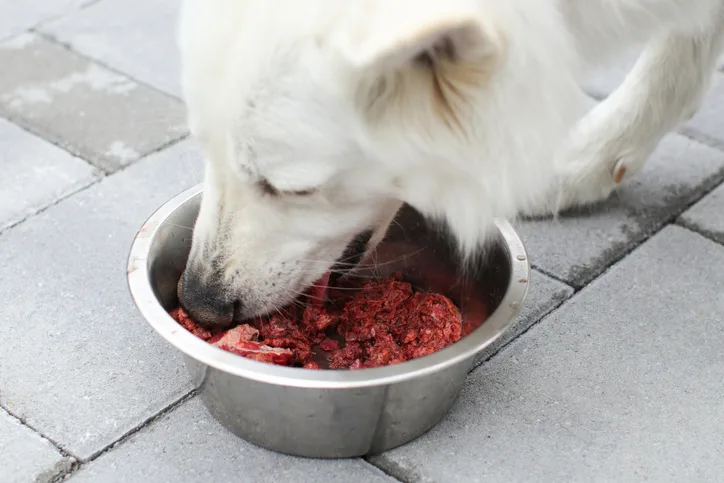
In the Literature
Monsey O, Wareham K, Hammond A, et al. Evidence that faecal carriage of resistant Escherichia coli by 16-week-old dogs in the United Kingdom is associated with raw feeding. One Health. 2022;14:100370. doi:10.1016/j.onehlt.2022.100370
The Research …
The World Health Organization describes the emergence of antimicrobial-resistant bacteria as a global threat to public health and an important issue for One Health, which is a collaborative approach to improving health outcomes that recognizes the interconnectedness among humans, animals, plants, and the environment.1,2 The rise in antimicrobial-resistant bacterial infections in humans and animals, as well as the possibility of a direct link, are of concern.3 A relationship between feeding raw food diets to dogs and colonization and shedding of antimicrobial-resistant bacteria has been reported.4-6
This study explored risk factors associated with carriage of antimicrobial-resistant bacteria in dogs and is one of the first studies to identify a possible direct link between antimicrobial-resistant bacteria carried by dogs and active human infections in the same geographic area.
A population of young dogs (n = 223) was comprehensively evaluated via pet owner questionnaires, bacterial cultures of fecal samples, and genetic analyses of antimicrobial-resistant fecal bacterial isolates. These findings were compared with the genetic lineage of urinary bacteria from human UTIs in the same geographic area. Feeding raw food (including commercially produced raw diets) was the only lifestyle factor associated with carriage of antimicrobial-resistant bacteria in the dogs.
Notably, fluoroquinolone-resistant Escherichia coli were a common isolate in dogs fed a raw food diet, and bacteria with the same resistance pattern and genetic lineage were identified in humans with UTIs in the same area. Because fluoroquinolones are classified as critically important for human health, identification of bacteria resistant to this class of antimicrobials should cause alarm and prompt investigation of measures to effectively eliminate this problem.
Owners who feed home-prepared and/or commercially produced raw diets should be aware of the risk to immunocompromised individuals who come into contact with young dogs fed raw food.
… The Takeaways
Key pearls to put into practice:
When caring for dogs fed raw diets, veterinary staff should take additional precautions (eg, wearing personal protective equipment, practicing judicious hand hygiene) to avoid being colonized with bacteria that may be multidrug resistant.
Owners who feed their dogs raw diets should be educated on the potential health risks for themselves and others.
Veterinary staff and pet owner awareness of One Health issues (eg, need for effective antimicrobial stewardship) may help reverse concerning trends that threaten human and animal health.
You are reading 2-Minute Takeaways, a research summary resource presented by Clinician’s Brief. Clinician’s Brief does not conduct primary research.